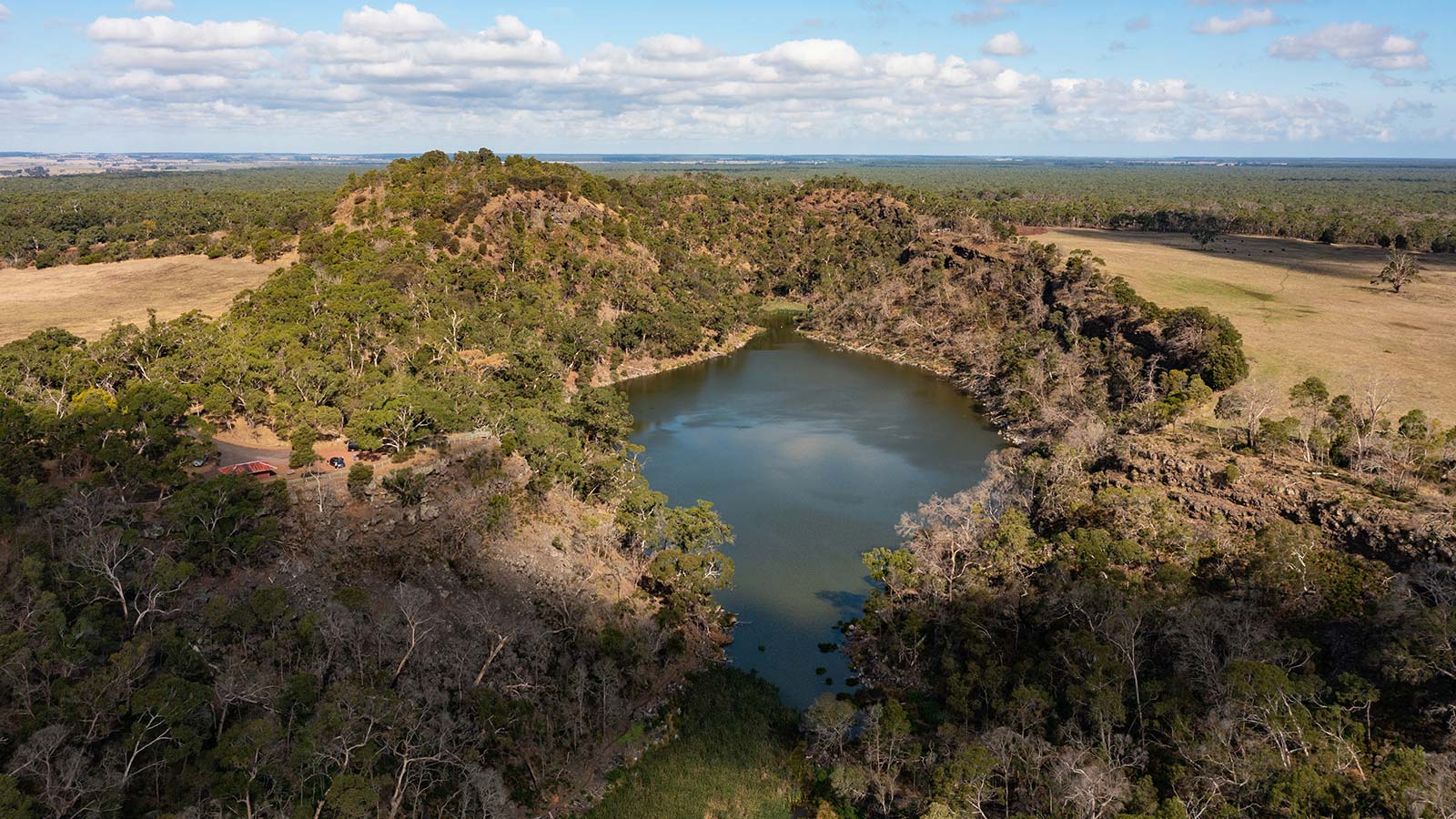It achieved the prestigious feat with Victorian Government support in 2019.
The Gunditj Mirring Traditional Owners Aboriginal Corporation (GMTOAC) oversee the site and CEO Damein Bell says the recognition was something quite memorable.
“Knowing this is the only site in Australia that has been added to the UNESCO World Heritage List purely based on its Indigenous and cultural values is pretty spectacular.”
Budj Bim itself is a dormant volcano with historical lava flows helping form one of the world’s most extensive and oldest aquaculture systems, harnessed by the local Gunditjmara People over 8,000 years ago.
Across five separate sites, the Budj Bim Cultural Landscape hosts the remains of over 300 Aboriginal stone houses – evidence of the Gunditjmara People’s permanent settlement in the area, as well as a sophisticated system of channels, fish traps and weirs used for farming eels.

Growing Budj Bim as an iconic tourism destination
The Victorian Government is ensuring the Budj Bim Cultural Landscape grows to become a truly iconic regional tourism attraction, with $12 million invested in new infrastructure across the landscape to protect its important historical and cultural value.
Works include a new eel aquaculture and information centre, art installations, new raised walkways, a new cantilevered lookout, an upgraded information centre, entrance infrastructure, carparks and interpretive signage.
The works will help bring more visitors to the region, ensuring more people hear the incredible stories of the Gunditjmara People.
“For Gunditjmara, we are educating the broader community on our cultural practices and knowledge. First Nations Culture needs to be shared to ensure our ongoing connection to people and place,” Mr Bell said.
Mr Bell says they are also excited by what the new tourism infrastructure will bring for the Corporation and the entire area.
“The new tourism infrastructure provides an opportunity to increase the capacity of the local Gunditjmara community to manage nature-based tourism assets and provide management and employment opportunities.”
Collaborative planning
The Master Plan for the Budj Bim works was developed in consultation between Traditional Owners, Moyne and Glenelg Shire Councils, and other key stakeholders including the Department of Environment, Land, Water and Planning, Parks Victoria and Regional Development Victoria, to ensure the cultural and historical significance of the landscape is maintained.
Glenelg Shire Council CEO Greg Burgoyne is optimistic that the upgrades to Budj Bim will continue the boost local tourism received from intrastate visitors throughout the COVID-19 pandemic.
"I think what the pandemic has done is created a level of awareness that hasn’t previously existed before around the opportunities for regional tourism. My hope is that continues to grow during 2022."
The Gunditj Mirring Traditional Owners Aboriginal Corporation received funding of $8 million through the Regional Tourism Infrastructure Fund, and a further $4.2 million announced in the 2019 state budget to undertake both the UNESCO World Heritage Listing bid and the roll out of the Master Plan.
The new infrastructure will mark a new chapter for Budj Bim, a chapter which the Gunditj Mirring Traditional Owners Aboriginal Corporation can’t wait to begin.
“We are very excited to embark on this new journey and share our knowledge, stories and history with everyone in a sustainable way to ensure the ongoing protection of our Country.”
Greg Burgoyne, Glenelg Shire Council CEO


